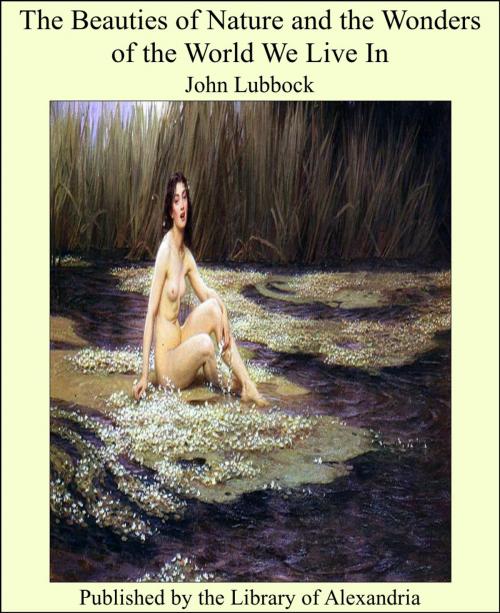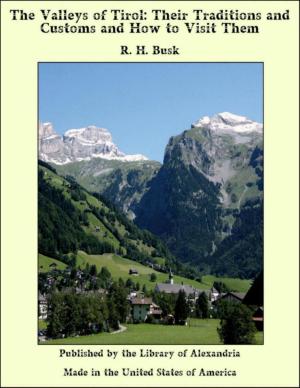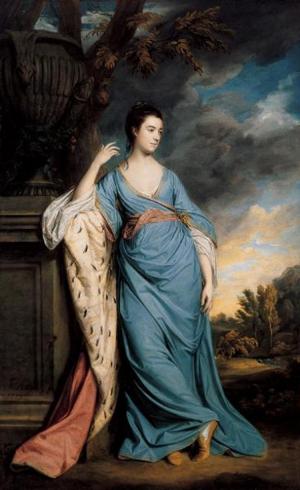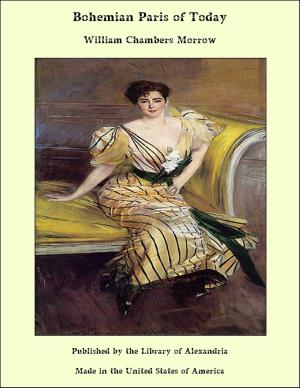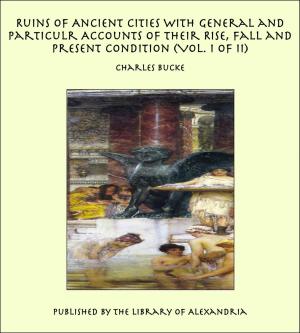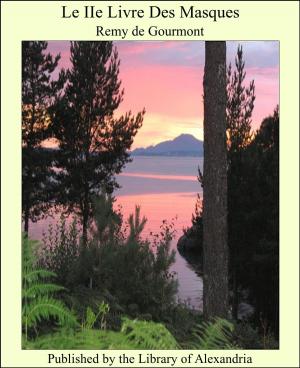The Beauties of Nature and the Wonders of the World We Live In
Nonfiction, Religion & Spirituality, New Age, History, Fiction & Literature| Author: | John Lubbock | ISBN: | 9781613104118 |
| Publisher: | Library of Alexandria | Publication: | March 8, 2015 |
| Imprint: | Language: | English |
| Author: | John Lubbock |
| ISBN: | 9781613104118 |
| Publisher: | Library of Alexandria |
| Publication: | March 8, 2015 |
| Imprint: | |
| Language: | English |
If any one gave you a few acres, you would say that you had received a benefit; can you deny that the boundless extent of the earth is a benefit? If any one gave you money, you would call that a benefit. God has buried countless masses of gold and silver in the earth. If a house were given you, bright with marble, its roof beautifully painted with colours and gilding, you would call it no small benefit. God has built for you a mansion that fears no fire or ruin … covered with a roof which glitters in one fashion by day, and in another by night…. Whence comes the breath you draw; the light by which you perform the actions of your life? the blood by which your life is maintained? the meat by which your hunger is appeased?… The true God has planted, not a few oxen, but all the herds on their pastures throughout the world, and furnished food to all the flocks; he has ordained the alternation of summer and winter … has invented so many arts and varieties of voice, so many notes to make music…. We have implanted in us the seed of all ages, of all arts; and God our Master brings forth our intellects from obscurity.—Seneca. The world we live in is a fairyland of exquisite beauty, our very existence is a miracle in itself, and yet few of us enjoy as we might, and none as yet appreciate fully, the beauties and wonders which surround us. The greatest traveller cannot hope even in a long life to visit more than a very small part of our earth, and even of that which is under our very eyes how little we see! What we do see depends mainly on what we look for. When we turn our eyes to the sky, it is in most cases merely to see whether it is likely to rain. In the same field the farmer will notice the crop, geologists the fossils, botanists the flowers, artists the colouring, sportsmen the cover for game. Though we may all look at the same things, it does not at all follow that we should see them. It is good, as Keble says, “to have our thoughts lift up to that world where all is beautiful and glorious,”—but it is well to realise also how much of this world is beautiful. It has, I know, been maintained, as for instance by Victor Hugo, that the general effect of beauty is to sadden. “Comme la vie de l’homme, même la plus prospère, est toujours au fond plus triste que gaie, le ciel sombre nous est harmonieux. Le ciel éclatant et joyeux nous est ironique. La Nature triste nous ressemble et nous console; la Nature rayonnante, magnifique, superbe … a quelque chose d’accablant.”[1
If any one gave you a few acres, you would say that you had received a benefit; can you deny that the boundless extent of the earth is a benefit? If any one gave you money, you would call that a benefit. God has buried countless masses of gold and silver in the earth. If a house were given you, bright with marble, its roof beautifully painted with colours and gilding, you would call it no small benefit. God has built for you a mansion that fears no fire or ruin … covered with a roof which glitters in one fashion by day, and in another by night…. Whence comes the breath you draw; the light by which you perform the actions of your life? the blood by which your life is maintained? the meat by which your hunger is appeased?… The true God has planted, not a few oxen, but all the herds on their pastures throughout the world, and furnished food to all the flocks; he has ordained the alternation of summer and winter … has invented so many arts and varieties of voice, so many notes to make music…. We have implanted in us the seed of all ages, of all arts; and God our Master brings forth our intellects from obscurity.—Seneca. The world we live in is a fairyland of exquisite beauty, our very existence is a miracle in itself, and yet few of us enjoy as we might, and none as yet appreciate fully, the beauties and wonders which surround us. The greatest traveller cannot hope even in a long life to visit more than a very small part of our earth, and even of that which is under our very eyes how little we see! What we do see depends mainly on what we look for. When we turn our eyes to the sky, it is in most cases merely to see whether it is likely to rain. In the same field the farmer will notice the crop, geologists the fossils, botanists the flowers, artists the colouring, sportsmen the cover for game. Though we may all look at the same things, it does not at all follow that we should see them. It is good, as Keble says, “to have our thoughts lift up to that world where all is beautiful and glorious,”—but it is well to realise also how much of this world is beautiful. It has, I know, been maintained, as for instance by Victor Hugo, that the general effect of beauty is to sadden. “Comme la vie de l’homme, même la plus prospère, est toujours au fond plus triste que gaie, le ciel sombre nous est harmonieux. Le ciel éclatant et joyeux nous est ironique. La Nature triste nous ressemble et nous console; la Nature rayonnante, magnifique, superbe … a quelque chose d’accablant.”[1
